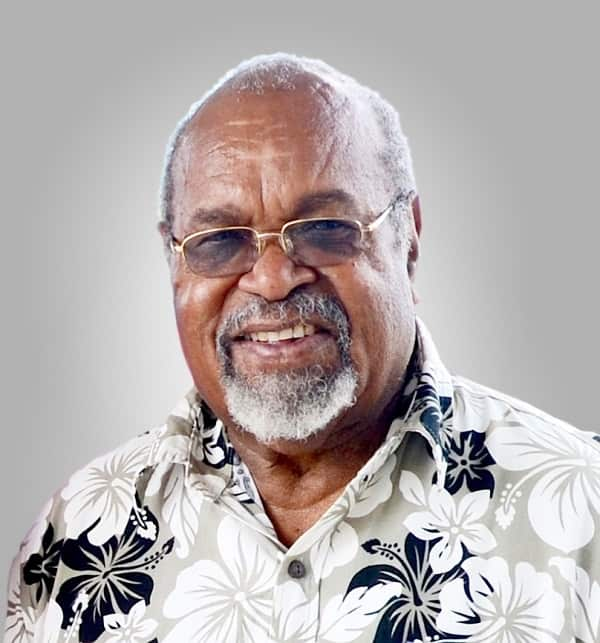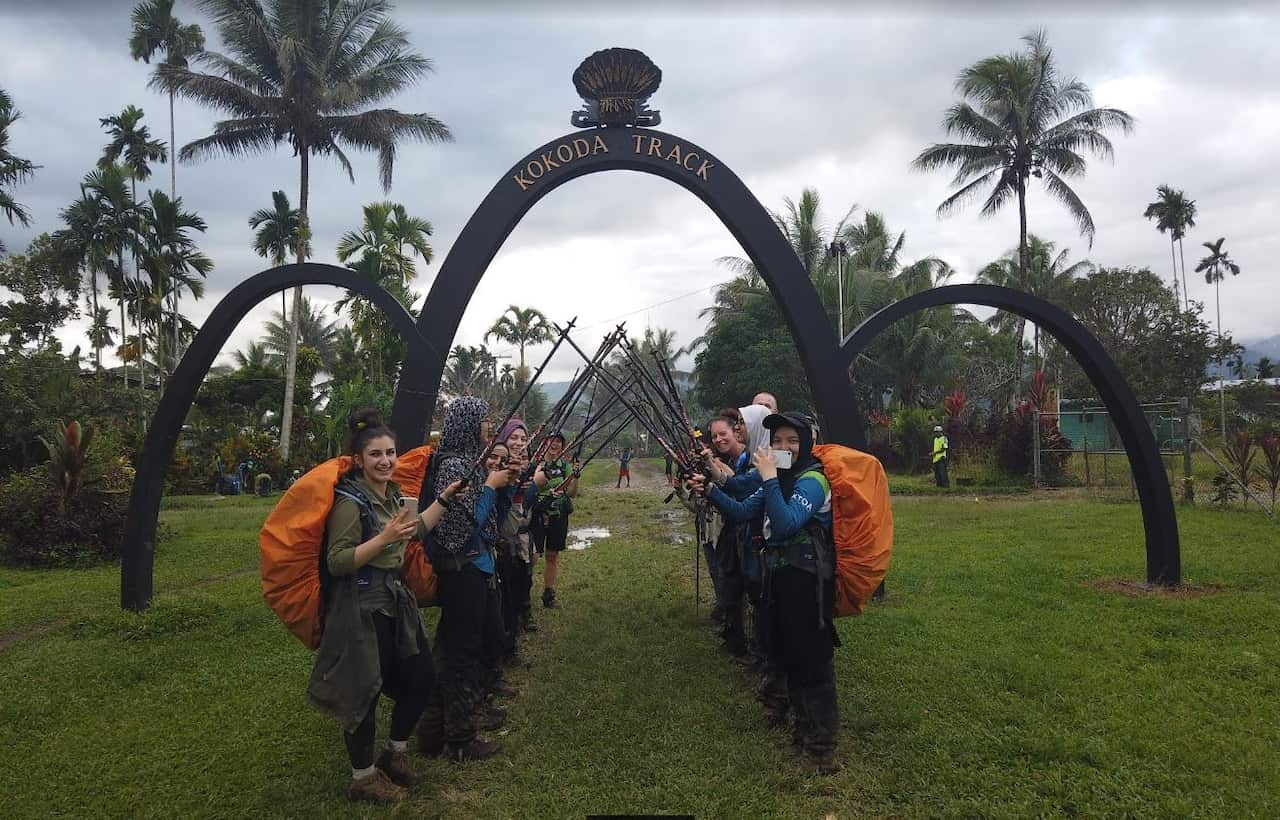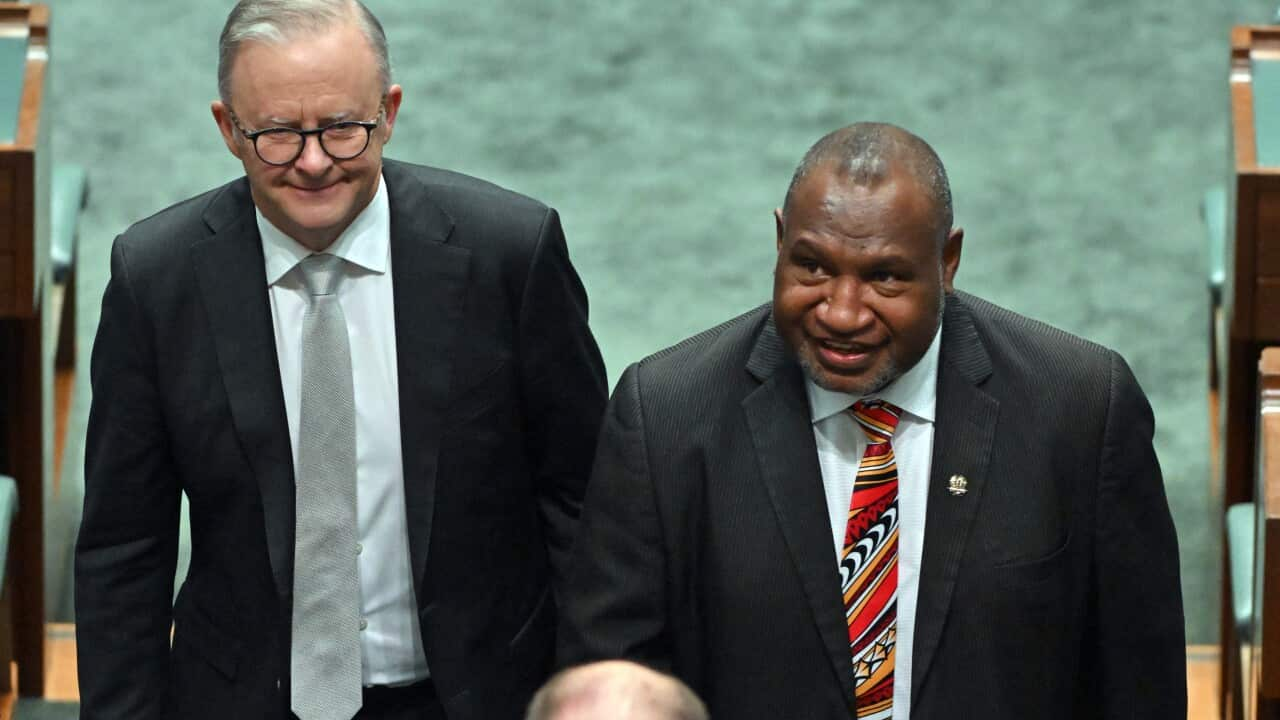O le Aso 16 of Setema 1975, na tu’uina ai i lalo le fu’a o le malo Ausetalia, ae sisiina le fu’a o le malo tuto’atasi o Papua Niu Kini i le laumua i Port Moresby ma amata ai le folauga a Papua Niu Kini o se malo tu-ma’oti e pulea ona lava tagata.
O le sauniga na auai atu iai Prince Charles, lea ua se’ei nei i le nofoa’iga tupu o Peretania, Salesa III, le palemia o Ausetalia i le tausaga lena, Gough Whitlam, ma le palemia muamua o Papua Niu Kini, Michael Somare.

Former PNG prime minister Sir Michael Somare served a total of 17 years in the role. Credit: PNG Government
Talu mai le 1946, na avea ai Papua Niu Kini o se teritori na pulea atu i Ausetalia ae i tausaga i luma atu o lena, na pulea ai o ni kolone o Peretania i le itu i Saute, ma Siamani i le itu i Matu.
E manatua e Father Paul Sireh, o se patele o le Ekalesia Katoliko Roma i Melbourne, le aso o le tuto’atasi i le taimi lena o la’ititi ma ola a’e i Manus Island i Papua Niu Kini:
"I was in Grade One when we had our independence night in 1975, the 16th of September. As a little kid, we participated, with a dance and all that, and it was wonderful."
O loo faia i le vaiaso nei le tele o fiafia ma sauniga e fa’amanatu ai le 50 tausaga o le tuto’atasi o Papua Niu Kini.
O Taieta Viri-Dabiro na malaga mai i le 1993 mai Papua Niu Kini e aumau i Ausetalia nei, ma na ia fa’aalia:
"It's our rich culture, our traditions, our diverse many languages. We have 700 plus languages. So that's how rich and diverse our languages are. Obviously, our incredible food - which is a lot of carbs! Then, as you know, our abundant natural resources, and with that comes without the strength and resilience of our people. So, when I think of 50 years, that's what comes to mind."
O le itu e faigata ai ona fa’avae se malo tuto’atasi o atunu’u e pei o Papua Niu Kini, ona o le tele o tausaga o ‘ese’ese ma le maopoopo tagatanu’u.
E le gata i le mauga ma faigata ona feso’ota’i fa’afesaga’i, ae e ‘ova i le 700 gagana ‘ese’ese a tagata i Papua Niu Kini.
E pei ona fa’amatalaina e Professor Jonathan Richie o le mata’upu History i le Univesite o Deakin:
"During the three years or so prior to PNG becoming independent, there was massive consultation exercise. People going out into the highlands at islands, villages everywhere, asking people what should go in. And there were a whole lot of questions, really quite detailed questions about what should be the correct relationship between different levels of government and what should be the relationship between the judiciary and, and even some much less complex, but really profound questions like, who should be a citizen, a Papua New Guinea, what are the qualifications to be a citizen?"
I le 50 tausaga lenei talu ona tuto’atasi le malo Papua Niu Kini, o loo feagai pea lea atunu’u ma fa’afitauli i le fetaua’i o tagata i le va o tribes, le maualuga o le aofa’i o soligatulafono ae maise le sauaina o tina ma fanau i aiga.
E ui i lea, na fa’aalia e Professor Ritchie o le le’i molimauina i Papua Niu Kini o se fouvalega o le malo, se coup, o se fa’ailoga o le fa’atauaina e tagatanu’u o le Fa’avae o le malo tuto’atasi o Papua Niu Kini:
"I think it's one of the reasons why Papua Guinea has been constitutionally quite stable for the last 50 years, because there was real effort by the Papua New Guinea leaders, including Michael Somare, but also a group of others, to make sure that the people of Papua New Guinea felt that they owned their independence, and in particular, their constitution, which is now called sometimes called, mama law, the mother law."
I le 50 tausaga lenei talu ona le toe pulea atu i Ausetalia nei le malo Papua Niu Kini, o loo molimauina pea le malosi o le va fealoa’i o atunu’u e lua.

Sirius College students at the beginning of the Kokoda Track in PNG. Source: Supplied
O le tala fa’asolopito o le va lalata o le militari a Ausetalia ma tagata Papua Niu Kini o loo ta mau i le tala o le Kokoda Trail, lea na tau fa’atasi ai fitafita a Ausetalia ma Papua Niu Kini i le taua ma Iapani i le Taua lona Lua o le lalolagi i le 1942.
"So, I suppose the relationship that Australia and PNG have on a military side does go back to that sense of shared ordeal, shared bravery, shared courage, shared humour, all the way, all through that shared ordeal."
I le fa’amanatuina ai o le 50 tausaga o le malo tuto’atasi o Papua Niu Kini, ua sainia ai e le palemia o Ausetalia, Anthony Albanese, ma le palemia o Papua Niu Kini, James Marape, se feagaiga i Port Moresby e mafai ai e fitafita o le militari a Papua Niu Kini ona galulue i le militari a Ausetalia, ma avea o se auala e mafai ai ona avea ma sitiseni o Ausetalia.
E pei ona saunoa le palemia Anthony Albanese i le A-B-C:
“It's an upgrade in our security relationship to a treaty level, to the sort of level that we have with the United States and our important allies."
(O le ripoti na fa’amaopoopoina e Edwina Guinan mo le SBS News)
Share

